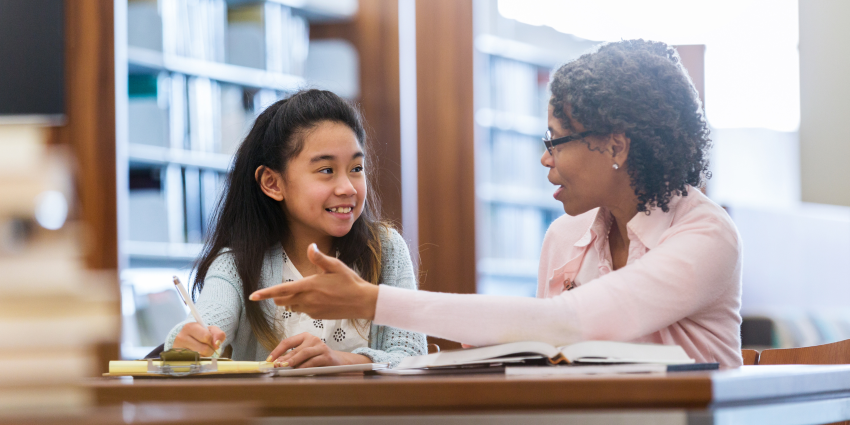Research & Insights / Reimagining Social Capital in Boston: Expanding a Collective Sense of Possibility
Reimagining Social Capital in Boston: Expanding a Collective Sense of Possibility

As social capital gets more well-deserved attention, there is a tendency to talk about it in a transactional way: go meet some people so you are better positioned to land a job, and here are some tools and experiences to help you meet “the right” people. We pushed hard for a different focus, inviting an explicitly relationship-centered and asset-based approach.
We recently partnered with colleagues at the Boston Public Schools, Apprentice Learning, and Mass Mentoring Partnerships to explore social capital in the middle grades. The work was a part of an initiative funded by the Bill and Melinda Gates Foundation with a focus on activating and expanding student networks as an important component of college and career pathways. We were the only site specifically focused on the middle grades, a critical time when students need opportunities to explore their identities and passions, develop trusting relationships, and experience individual care.
The partnership began with stating a clear goal for our work together: “In Boston, we recognize that students are relationship rich, and we aim to make those assets more visible to them and to their school communities. We strive for all young people to have a deep sense of belonging and connectedness that positions them to thrive in ways that are meaningful to them.”
Belonging. Connectedness. Thriving. These were words that regularly showed up in our language, strategies, and actions. This was not a new approach in Boston, as we were building on powerful and thoughtful work from the past and present, applying it directly to the concepts of social capital.
Across the two-year initiative, we piloted some new lessons in Transformative Mentoring, an initiative that was designed to engage adult mentors to support and guide middle grades students toward “the future they define, desire, and deserve.” We also incorporated new tools and strategies into the experiences of students and employer partners through Apprentice Learning, an organization that provides real-world work experiences to “teach skills, ignite purpose, and nurture dreams.” Along the way, we leveraged MyCAP, a multi-year postsecondary planning process, as a key resource in supporting students to discover and explore their interests, strengths, and hopes for the future, and we benefited from the vision and experience of Mass Mentoring Partnership. At each step of the initiative, we asked ourselves and our national partners hard questions about intent and impact.
Education Strategy Group released a new Cultivating Connections microsite featuring insights from the work in Boston and nine other communities across the country. It is full of resources, examples, and lessons learned, and it includes multiple highlights on the powerful work happening in Boston. You can read more about the team and our work in a Boston mini case study. Our important learning included:
- Bring an anti-racist lens to social capital development;
- Avoid assumptions about who and what students know or do not know;
- Prioritize language that better resonates with your students;
- Adapt existing resources to be more accessible for diverse learners;
- Engage teachers to generate critical feedback on how resources could be used; and
- Invite other stakeholders into the social capital conversation.
The Cultivating Connections resource highlights a familiar tagline: “When it comes to careers, who you know can be just as important as what you know.” Our work in Boston encourages us to go further. In one of our early conversations, my colleague bethany m. allen defined our work as “expanding a collective sense of possibility.” That phrase is on a sticky note on my computer, serving as a daily reminder, grounding, and call to action. Beyond what you know and who you know, we must unite around a commitment to supporting students in discovering who they are and what they dream of for themselves, their families, and their communities.



